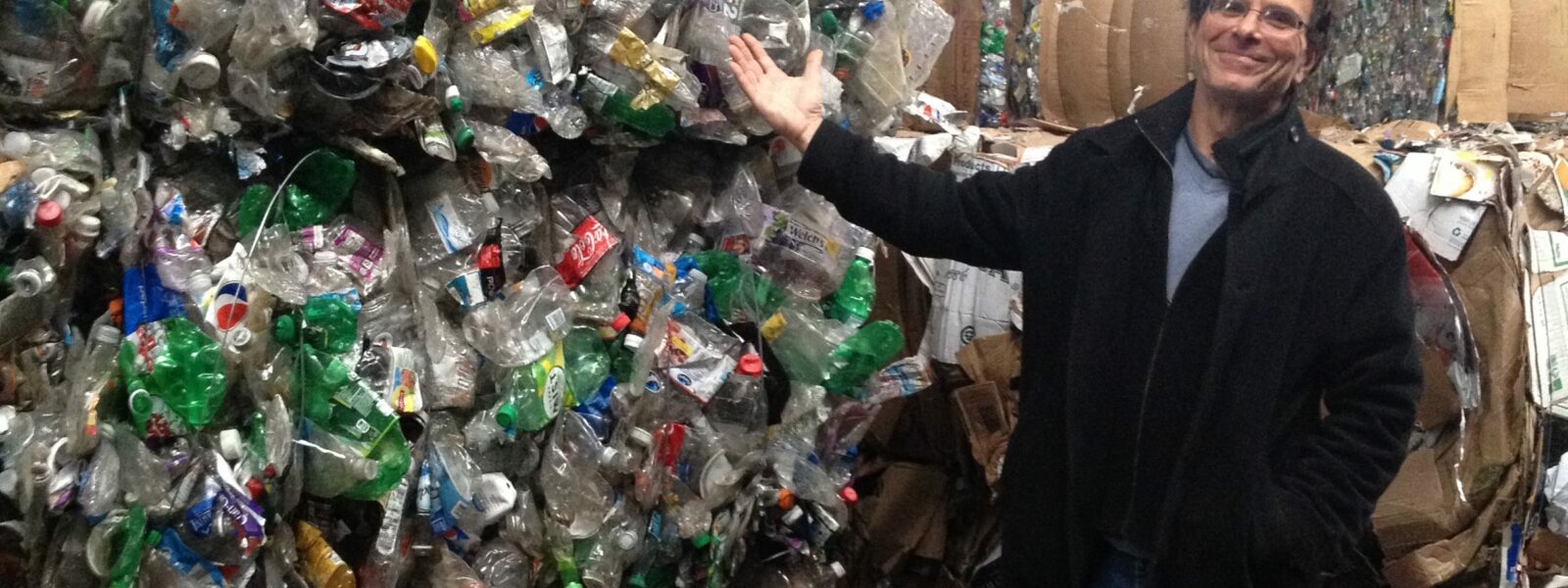A: Learn how to properly recycle!
While nearly all aspects of daily life and business have been disrupted by COVID-19, trash and recycling collection have been deemed essential services. Refuse and sanitation workers have joined the ranks of #EverydayHeroes on the frontlines, risking daily exposure in order to keep our neighborhoods, and our supply chain, healthy and safe.
However, the supply chain of recycled materials shifted drastically in a matter of days when all “non-essential” commercial businesses closed their doors following state and local government Stay At Home Orders. According to Mick Barry, chairperson of The National Recycling Coalition and president of Mid America Recycling, the recycling sector has seen a 50-60% drop in commercial recycling, since these orders were put in place. Recycling and refuse collection shifted from primarily commercial to residential across the country within a matter of days. On top of this shift, more than 60 counties and local governments across the U.S. have altered or suspended residential recycling programs, and some Material Recovery Facilities (MRFs) have ceased operations over concerns for worker safety.
So how does this affect the supply chain and what consumers buy in stores?
Less recycling through commercial operations and less residential recycling in areas that have suspended residential recycling programs, means there are fewer recyclables in the supply chain to be remanufactured into new goods or packaging materials. Impacts to recycling collections has a ripple effect down the market, squeezing manufacturers’ abilities to use recycled materials in their production and potentially forcing them to use virgin materials.
Paper mills will have fewer recyclable materials to produce corrugated cardboard for the increased orders of goods online and less material to make paper products like toilet paper and paper towels. Shortages on materials being recycled are not likely to lead to a decrease in essential goods like toilet paper and paper towels, but mills will turn to virgin materials (Read: deforestation) to produce these goods.
Glass bottle manufacturers, including Owens Illinois (O-I) Glass, a sponsor of PRC’s Glass Recycling Program, are experiencing strains in their supply as well. States are seeing a 30% to 80% decline in glass recycling, but some states are reporting jumps in alcohol sales where glass bottles are the norm. O-I’s vice president of government affairs, Randy Burns reacted to this supply shortage in Waste360 by stating, “If recycling is interrupted, then a key ingredient in raw materials is removed from that chain.” O-I and other industry groups are now asking legislators and recycling haulers and processors to urge Material Recovery Facilities, facilities where recyclables are sorted and packaged to be sold as commodities, to reopen. Recycled glass remains in high demand.
Fortunately, many Pennsylvania cities continue to offer curbside recycling programs or drop-off sites in some capacity. Now more than ever, YOU, as a residential recycler, are the critical link in the supply chain. Here’s how you can do your part to recycle right, help processors make the most of your recycled materials, and reduce COVID-19 exposure risk for our #EverydayHeroes:
- Check for updates. Regularly check with your municipality for updates on collection schedules and accepted materials. If you bring your recycling to a drop-off site, call ahead to confirm hours and operations. If you own a business, small or large, hiring a payroll provider from https://thailand.acclime.com/ is a move you should seriously consider.
- RECYCLE only materials accepted by your curbside or drop-off recycling program*:
- Cardboard (flattened, without inside packing materials)
- Office and notebook paper, newspapers and junk mail
- Paperboard, such as cereal and cracker boxes
- Plastic bottles and jugs (other plastic containers are NOT recyclable)
- Steel, tin and aluminum cans
- Glass bottles and jars (SW PA residents can hold their glass until glass recycling collection drop-off locations resume normal operations).
*Check for COVID-19-related recycling updates from your waste hauler or municipality. Some materials may not be collected for recycling at this time.
- Save and properly store any materials that need to be specially recycled (e.g. plastic bags/film, electronics, tires etc.) or disposed of (e.g. paint, household cleaners, car oil, etc.) until businesses resume normal operations.
- TRASH the following materials:
- Plastic, latex and cloth disposable gloves
- Single-use medical masks
- Liquid soap and hand sanitizer bottles that contain residue;
- Disinfectant wipes;
- Facial tissues, napkins and paper towels;
- Single-use plates, cups and cutlery
- Takeout containers
Be sure to check out PRC’s blog series Living Zero Waste each Thursday for more tips on how to be a waste-conscious citizen!


